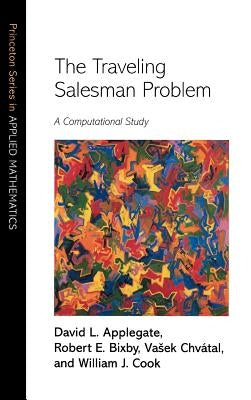Princeton University Press
The Traveling Salesman Problem: A Computational Study
The Traveling Salesman Problem: A Computational Study
Couldn't load pickup availability
This book presents the latest findings on one of the most intensely investigated subjects in computational mathematics--the traveling salesman problem. It sounds simple enough: given a set of cities and the cost of travel between each pair of them, the problem challenges you to find the cheapest route by which to visit all the cities and return home to where you began. Though seemingly modest, this exercise has inspired studies by mathematicians, chemists, and physicists. Teachers use it in the classroom. It has practical applications in genetics, telecommunications, and neuroscience.
The authors of this book are the same pioneers who for nearly two decades have led the investigation into the traveling salesman problem. They have derived solutions to almost eighty-six thousand cities, yet a general solution to the problem has yet to be discovered. Here they describe the method and computer code they used to solve a broad range of large-scale problems, and along the way they demonstrate the interplay of applied mathematics with increasingly powerful computing platforms. They also give the fascinating history of the problem--how it developed, and why it continues to intrigue us.Author: David L. Applegate, Robert E. Bixby, Vasek Chvátal
Publisher: Princeton University Press
Published: 02/04/2007
Pages: 608
Binding Type: Hardcover
Weight: 2.14lbs
Size: 9.45h x 6.41w x 1.71d
ISBN: 9780691129938
About the Author
David L. Applegate is a researcher at AT&T Labs. Robert E. Bixby is Research Professor of Management and Noah Harding Professor of Computational and Applied Mathematics at Rice University. Vasek Chvátal is Canada Research Chair in Combinatorial Optimization at Concordia University. William J. Cook is Chandler Family Chair in Industrial and Systems Engineering at the Georgia Institute of Technology.
Share


